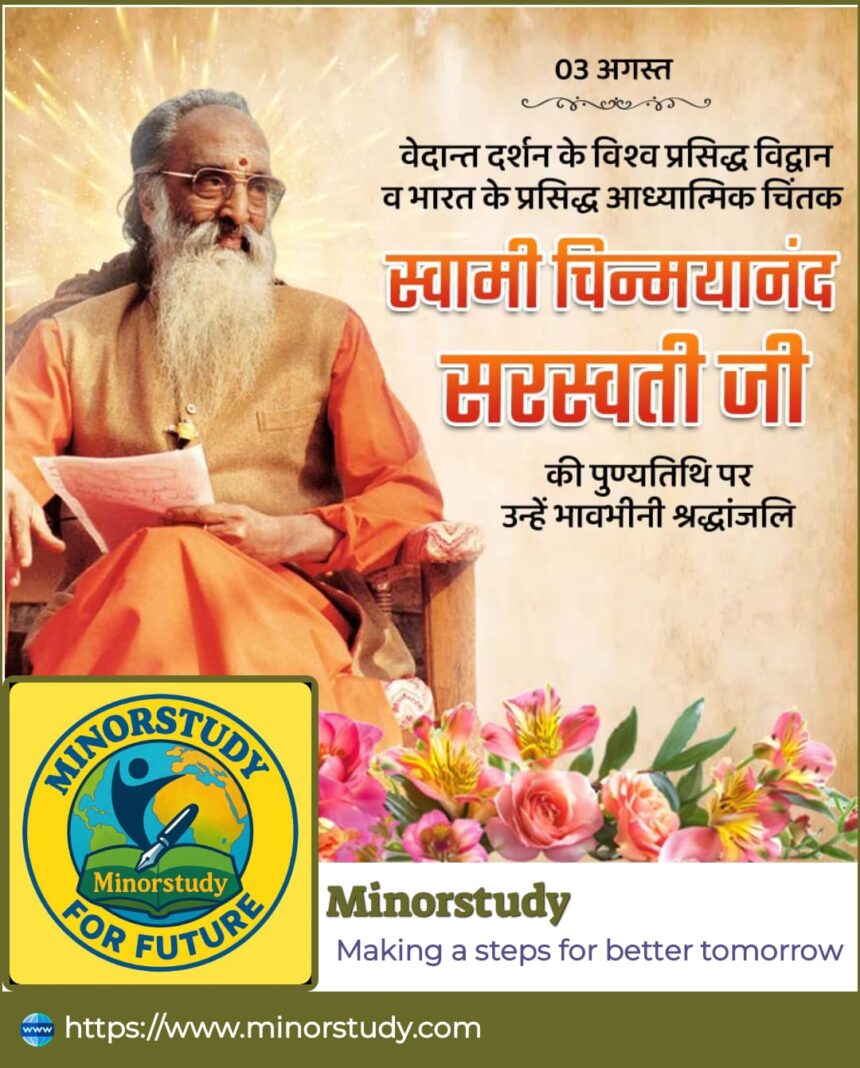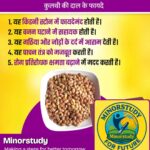🙏 Introduction: A Voice That Awakened a Generation
In a world clouded with confusion, Swami Chinmayananda Saraswati Ji emerged as a light of clarity, purpose, and Vedantic truth. A revolutionary saint of the 20th century, he bridged ancient wisdom with modern understanding, touching the lives of millions across the globe. From bustling metros to serene ashrams, his voice echoed with courage, conviction, and compassion.
- 🙏 Introduction: A Voice That Awakened a Generation
- 📜 History: From Journalist to Jagadguru
- 📊 Important Timeline
- 🌟 7 Enlightening Facts & Teachings
- 1. 📘 Knowledge is Liberation
- 2. 📣 “We must be spiritual citizens”
- 3. 🧠 “Mind alone is the cause of bondage and freedom”
- 4. 🏫 Education Initiatives
- 5. 🌍 Global Spiritual Footprint
- 6. 🤝 True Guru of the Masses
- 7. 🧘♂️ Personal Simplicity
- 🔍 FAQs About Swami Chinmayananda Saraswati Ji
- Q1: Was Swami Chinmayananda anti-science?
- Q2: What is his biggest contribution?
- Q3: Can anyone join Chinmaya Mission?
- Q4: What scriptures did he teach most?
- Q5: Did he promote Hinduism alone?
- 🎉 Observances & Celebrations
- 🙌 Wishes & Inspirations
- 💡 Important in Our Life
- 🏛️ Importance in Society
- ✅ Key Takeaways
- ✍️ Conclusion: The Flame Still Burns Bright
More than just a monk, he was a visionary teacher, reformer, and orator, bringing the timeless teachings of the Bhagavad Gita and Upanishads to the masses.
📜 History: From Journalist to Jagadguru
Birth Name: Balakrishna Menon
Date of Birth: 8 May 1916
Birthplace: Ernakulam, Kerala, India
Spiritual Name: Swami Chinmayananda Saraswati
Mahasamadhi: 3 August 1993, San Diego, California, USA
🧭 Journey:
Academic & Political Start
A graduate in English Literature and Law from Lucknow University, he was a fierce freedom fighter and journalist during British rule. His articles reflected nationalist fervor and intellectual rebellion.Transformation through Illness
A bout of serious illness and inner emptiness led him to seek deeper truths. This led him to Swami Sivananda in Rishikesh and eventually to Swami Tapovan Maharaj in the Himalayas.Sannyas and Teaching Mission
He was initiated into sannyasa in 1949, adopting the name Chinmayananda, meaning “bliss of pure Consciousness.”Birth of the Chinmaya Mission
In 1953, he began Jnana Yagnas (knowledge discourses), forming what would become the global Chinmaya Mission — with over 300 centres today.
📊 Important Timeline
| Year | Milestone |
|---|---|
| 1916 | Born in Kerala as Balakrishna Menon |
| 1940s | Active journalist & freedom fighter |
| 1949 | Takes sannyasa from Swami Sivananda |
| 1951 | Intensive Vedantic study with Swami Tapovan Maharaj |
| 1953 | Begins first Jnana Yagna in Pune |
| 1953-1993 | Chinmaya Mission expands globally |
| 1993 | Attains Mahasamadhi in the USA |
🌟 7 Enlightening Facts & Teachings
1. 📘 Knowledge is Liberation
Swamiji believed Vedanta is not philosophy, but a way of life. He taught that true happiness lies in self-realization, not material gain.
2. 📣 “We must be spiritual citizens”
He emphasized that spirituality is not escapism, but active participation in nation-building. He blended Karma Yoga (action), Bhakti (devotion), and Jnana (knowledge).
3. 🧠 “Mind alone is the cause of bondage and freedom”
His discourses simplified complex scriptures into digestible, modern-friendly interpretations — especially the Bhagavad Gita and Upanishads.
4. 🏫 Education Initiatives
He envisioned a society where spiritual knowledge began at a young age. His legacy includes:
Chinmaya Vidyalayas (over 100 schools)
Chinmaya Vishwavidyapeeth – a university blending tradition & modernity
Bala Vihar – weekly spiritual classes for children worldwide
5. 🌍 Global Spiritual Footprint
He was the first monk to speak on Vedanta in English internationally, taking Indian spirituality to the West — decades before yoga became popular abroad.
6. 🤝 True Guru of the Masses
He broke the idea that spirituality is only for sannyasis. He brought spiritual discourse into homes, colleges, auditoriums, making it accessible to families, youth, and professionals.
7. 🧘♂️ Personal Simplicity
Despite global recognition, Swamiji lived with utmost humility — using his fame only as a tool to serve the scriptures.
🔍 FAQs About Swami Chinmayananda Saraswati Ji
Q1: Was Swami Chinmayananda anti-science?
No. He embraced science and logic. His discourses explained Vedantic truths using scientific analogies and modern psychology.
Q2: What is his biggest contribution?
Making Vedanta practical and global. He also initiated spiritual education for all ages, something rarely done before him.
Q3: Can anyone join Chinmaya Mission?
Yes. Chinmaya Mission welcomes devotees, seekers, youth volunteers, and anyone eager to grow spiritually.
Q4: What scriptures did he teach most?
Primarily the Bhagavad Gita, Upanishads, and Bhagavatam, all with deep commentary and modern applicability.
Q5: Did he promote Hinduism alone?
While rooted in Sanatana Dharma, he focused on universal values, peace, unity, and inner growth, transcending labels.
🎉 Observances & Celebrations
Chinmaya Jayanti (8 May) is observed globally with:
Spiritual discourses
Gita chanting competitions
Community service drives
Tree plantation & seva activities
Gita Jnana Yagnas, in his tradition, continue across continents.
Youth festivals like CHYK (Chinmaya Yuva Kendra) events promote introspective fun, moral courage, and leadership.
🙌 Wishes & Inspirations
“On Swami Chinmayananda Jayanti, may we awaken the guru within.”
“Wishing you the wisdom to rise above the noise, and live in conscious joy – as Swamiji taught us.”
“Let his voice echo in our thoughts: ‘You change and the world changes with you.’”
💡 Important in Our Life
Why is he relevant even today?
In a world drowning in distractions, his teachings bring us focus.
In an age of conflict, his words bring clarity and unity.
For youth, he’s a bridge between ambition and awareness.
For adults, he’s a reminder of purpose beyond profession.
He did not merely teach — he transformed. He didn’t only preach — he embodied what he taught.
🏛️ Importance in Society
Swami Chinmayananda Ji’s vision was not just personal salvation, but collective evolution:
Reawakened cultural pride among Indians post-independence
Inspired thousands of monks, educators, and leaders
Laid foundations for value-based education
Championed spirituality as national service
His quote remains timeless:
“Children are not vessels to be filled, but lamps to be lit.”
✅ Key Takeaways
| Aspect | Contribution |
|---|---|
| Education | Over 100 schools, spiritual youth programs |
| Spirituality | Modern explanation of Vedanta, Upanishads |
| Society | Civic values, patriotism, and seva |
| Global Impact | First Indian monk to globalize Gita teachings |
✍️ Conclusion: The Flame Still Burns Bright
Swami Chinmayananda Saraswati Ji is not just a name — he is a movement of awareness. His life was an offering to Sanatana Dharma, and his work continues to ignite hearts across generations.
In him, we find a scholar, saint, speaker, and servant — all rolled into one divine embodiment of Self-Knowledge.
“Let us not ask ‘Why me?’ Let us ask, ‘How can I serve?’
_This is Chinmaya – the pure Consciousness that uplifts all.”








